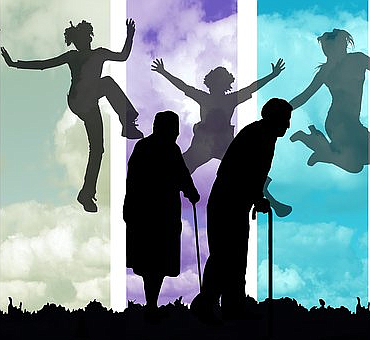New Research on Reversing the Effects of Aging
November 20, 2022 at 10:45 a.m.
“How many times have you heard if you are over the age over 40, well, you’re getting sick, you’re getting pain, your eyesight is degrading, don’t worry, that’s just normal aging. I really don’t agree with that approach.”
Sinclair believes the root cause of aging and health decline stems from damage to the so-called epigenome, the part of our cells that turn genes on or off.
“Our bodies have two different types of information. We all know about the DNA. Now there’s another type of information that most people don’t know about. It’s called the epigenome and it’s the reader of the DNA.”
Sinclair then goes on to explain a breakthrough his team had a couple of years ago. “We found that there was a way to get the scratches off and reverse the age itself.”
“How we did that in the mice and we cured blindness with them, was to turn on three genes that are normally on in embryos. And when we turned those three genes back on in adult tissue, the mice regenerate and they get their vision back.”
In what researchers are calling the first study of its kind, Sinclair and his team were able to age the mice and then make them younger again. They did it by breaking up the DNA and forcing the body to repair itself.
The results were shared at a conference earlier this year and are under review for publication. This groundbreaking technology builds on the work of Japanese scientist, Shinya Yamanaka, who discovered how cells can be reprogrammed to be stem cells which can then develop into cells of any type.
The research looks at using this technology to improve memory loss. The cells can be built to mimic little human brains where they can actually measure activity in the brain. As the mini brains age, their activity slows down. But early experiments show that the age and function of the brains can be reversed, so they behave as if they are young again and work like they used to.
While much more research is needed, Sinclair hopes that one day reversing the hallmarks of aging can be as simple as a pill from the doctor’s office.
The interviewer asks Sinclair if it would be like “Once a year you go get prescription from your doctor that you take it for a week, and it reverses aging…is that your vision here?”
Sinclair responds by saying, “It’s not just a vision. It’s going to happen. It’s like asking the Wright brothers if we are going to fly. Well of course we are, it’s just a question of when.”
Sinclair sees this happening in about 15 years, but there are still many questions to answer and much work to be accomplished.
You can watch the video here: Researchers say they are close to reversing aging (nbcnews.com)





